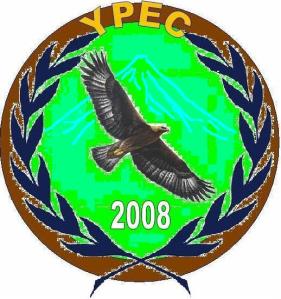G.R. No. 164273 March 28, 2007
Austria-Martinez, J. Third Division
Facts:
Emmanuel B.
Aznar (hereafter Aznar) is a holder of a Preferred Master Credit Card (hereafter
Mastercard). Aznar claims that when he presented his Mastercard in some
establishments in Malaysia, Singapore and Indonesia, the same was not honored. And
when he tried to use the same in Ingtan Tour and Travel Agency (Ingtan Agency)
in Indonesia to purchase plane tickets to Bali, it was again dishonored for the
reason that his card was blacklisted by Citibank.
To prove that
Citibank blacklisted his Mastercard, Aznar presented a computer print-out,
denominated as ON-LINE AUTHORIZATIONS FOREIGN ACCOUNT ACTIVITY REPORT, issued
to him by Ingtan Agency with the signature of one Victrina Elnado Nubi (hereafter
Nubi) which shows that his card in question was "DECL OVERLIMIT" or
declared over the limit.
The Regional
Trial Court rendered its decision dismissing Aznar’s complaint for lack of
merit. It held that as between the computer print-out presented by Aznar and
the Warning Cancellation Bulletins presented by Citibank, the latter had more
weight as their due execution and authenticity were duly established by
Citibank.
Upon motion for
reconsideration, the decision was reversed. Judge De la Peña ruled that the
computer print-out was printed out by Nubi in the ordinary or regular course of
business in the modern credit card industry and Nubi was not able to testify as
she was in a foreign country and cannot be reached by subpoena. The same took
judicial notice of the practice of automated teller machines (ATMs) and credit
card facilities which readily print out bank account status, therefore the
print-out can be received as prima facie evidence of the dishonor of Aznar’s
Mastercard;
On appeal, the
Court of Appeals (hereafter CA) ruled that the computer print-out is an
electronic document which must be authenticated pursuant to Section 2, Rule 5
of the Rules on Electronic Evidence or under Section 20 of Rule 132 of the
Rules of Court by anyone who saw the document executed or written; Aznar,
however, failed to prove its authenticity, thus it must be excluded;
Issues:
Whether or not
the "On Line Authorization Report" is an electronic document."
Whether or not
the "On Line Authorization Report" constitutes electronic evidence;
Ruling:
The Supreme
Court (hereafter Court) denied the petition for lack of merit.
Aznar puts much
weight on the ON-LINE AUTHORIZATION FOREIGN ACCOUNT ACTIVITY REPORT, a computer
print-out handed to Aznar by Ingtan Agency, to prove that his Mastercard was
dishonored for being blacklisted. On said print-out appears the words
"DECL OVERLIMIT".
As correctly
pointed out by the RTC and the CA, however, such exhibit cannot be considered
admissible as its authenticity and due execution were not sufficiently
established by petitioner.
The prevailing
rule at the time of the promulgation of the RTC Decision is Section 20 of Rule
132 of the Rules of Court. It provides that whenever any private document
offered as authentic is received in evidence, its due execution and
authenticity must be proved either by (a) anyone who saw the document executed
or written; or (b) by evidence of the genuineness of the signature or handwriting
of the maker.
Aznar, who
testified on the authenticity did not actually see the document executed or
written, neither was he able to provide evidence on the genuineness of the
signature or handwriting of Nubi, who handed to him said computer print-out.
Even if examined
under the Rules on Electronic Evidence, which took effect on August 1, 2001,
and which is being invoked by Aznar in this case, the authentication of the
computer print-out would still be found wanting.
Aznar claims
that his testimony complies with par. (c), i.e., it constitutes the "other
evidence showing integrity and reliability of Exh. "G" to the
satisfaction of the judge." The Court is not convinced. Aznar’s testimony
that the person from Ingtan Agency merely handed him the computer print-out and
that he thereafter asked said person to sign the same cannot be considered as
sufficient to show said print-out’s integrity and reliability.













No comments:
Post a Comment